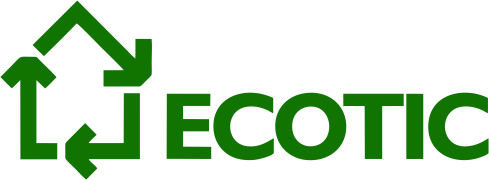 Interpol, as part of the Environmental Crimes Program, issued a press release on October 28, 2013, in Lyon, France on illegal trade and improper disposal of electronic waste, abbreviated as WEEE (waste electrical and electronic equipment). This communiqué emphasizes that this activity is becoming more and more a threat to global environmental protection and even security. In order to increase the skills of the competent bodies in the countries concerned by this type of trade in combating crimes related to the transport and trade of WEEE, activities on an upward trend, INTERPOL and its partners have launched the project to Combat Illegal Trade in WEEE (CWIT).
Interpol, as part of the Environmental Crimes Program, issued a press release on October 28, 2013, in Lyon, France on illegal trade and improper disposal of electronic waste, abbreviated as WEEE (waste electrical and electronic equipment). This communiqué emphasizes that this activity is becoming more and more a threat to global environmental protection and even security. In order to increase the skills of the competent bodies in the countries concerned by this type of trade in combating crimes related to the transport and trade of WEEE, activities on an upward trend, INTERPOL and its partners have launched the project to Combat Illegal Trade in WEEE (CWIT).
Coordinated by a consortium of seven partner organizations and funded by the European Commission's Seventh Framework Program, the CWIT project runs for two years, being launched in September 2013, to create a set of recommendations for the European Commission and enforcement agencies. of the law in order to provide the necessary assistance in combating the illegal trade in WEEE.
The project addresses the following main groups of actors - the governmental sphere, the law enforcement agencies, the electronic and the relevant industries, specify WEEE. The main purpose of the project is to identify the existing policy, the gaps related to the regulations in force, the procedures and techniques that criminals exploit, in order to illegally transport and dispose of this waste. Another purpose of CWIT is to recommend solutions for rectifying the mentioned situations.
CWIT project partners include experts in WEEE analysis, criminal analysis, database management, compliance with relevant regulations and security research. The consortium consists of representatives of INTERPOL, the United Nations University, UNICE, the Research Institute for Justice, WEEE Forum, the Cross-Border Research Association and Zanasi & Partners.
"The diverse expertise gathered in the CWIT consortium will encourage a comprehensive and multidisciplinary analysis of the illegal trade in WEEE," said David Higgins, head of Interpol's Environmental Crimes Program.
"CWIT will help the deeper understanding of the gravity of these cross-border activities, the role of companies and brokers involved in WEEE trading." said Dr. Jaco Huisman, scientific coordinator of the project and scientific advisor at the United Nations University Institute on Sustainable Development and Peace, Sustainable Cycles (UNU - ISP SCYCLE).
The CWIT project will also establish a platform for the exchange of information between different actors involved in combating the WEEE trade.
When you illegally transport or dispose of WEEE, you are subject to serious health risks, as many electronic products contain hazardous substances such as mercury, which can pollute the environment and cause health problems. In addition, valuable materials contained in certain WEEE, such as gold, copper and palladium, attract the involvement of organized criminal groups.
